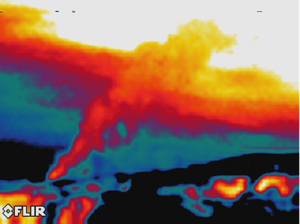How Long Should a Root Cause Analysis Take?

Time for a Root Cause Analysis?
How long should root cause analysis take? This is a question that I’m frequently asked.
Of course, the answer is … It DEPENDS!
Depends on what?
- How good does the root cause analysis need to be?
- How complex is the incident?
- How well trained and experienced are the investigators?
- Are there complex tests that need to be performed to troubleshoot equipment issues?
- Is everyone available to be interviewed?
- Is there regulatory coordination/interference (for instance … do they take control of the scene or the evidence)?
- How far do you want to dig into generic causes?
- What level of proof do you need to support your conclusions?
However, I believe most investigations should be completed in a couple of days, weeks, or, at most, months.
Now for the exceptions…
REGULATORY DELAYS
We helped facilitate a major investigation that was progressing until the regulators took the evidence. They stated that they needed it for their investigation. Their investigation dragged on for over a year. Finally, they announced their findings and released the evidence back to the company. It turned out that none of the evidence sequestered by the government had anything to do with the reason for their investigation being delayed (they were doing complex modeling and videos to demonstrate their conclusions). After about an additional two months, the company investigation was completed. The company’s investigation was delayed for over a year.
SLOW INVESTIGATION DELAYED BY UNCOOPERATIVE PARTICIPANTS
One of the longest root cause analyses I’ve ever seen took four years. The agency performing the investigation is notoriously slow when performing investigations but this investigation was slow even by their standards. What happened? The investigation had multiple parties that were suing each other over the accident and some of the parties would not comply with a subpoena. The agency had to take the unwilling participant to court. Eventually, the evidence was provided but it took almost a year for the process to play out.
SLOW INVESTIGATION PROCESSES

An example of a slow investigation process is the Aliso Canyon Natural Gas Storage leak root cause analysis. The investigation started 18 months after the leak was stopped. The root cause analysis was not finished until 2019. Why? It seems the process was mired in public hearings. At the time, the spokesperson for the California Public Utilities Commission said that the “study” was in the third phase of a five-phase process. What was slowing the “study” (root cause analysis and corrective actions) down? Public hearings. Here is what an article in NGI Daily Gas Prices from July 2017 said:
“A California Public Utilities Commission spokesperson said the study remains in the third of a five-phase process that is to take more than three years. The third phase is expected to take up to nine months, and the fourth phase more than two months, before the final phase of “integration and interpretation” of the results is issued.“
The process was scheduled to take three years! That definitely makes any kind of timely root cause analysis impossible.
CONCLUSION
Many people complain about the time it takes for a good root cause analysis. But most excessive delays have nothing to do with the root cause analysis process that is chosen. Excessive delays are usually political, due to uncooperative participants, or regulatory red tape.

Don’t try to save time on an investigation by picking the fastest root causes analysis tool (for example … Spin-a-Cause™), rather pick an advanced root cause analysis system (TapRooT® RCA) that will get you superior results in a reasonable amount of time and effort.
One more idea…
Learn from smaller but significant incidents to avoid major accidents that have huge public relations and regulatory complications. Learning from smaller incidents can be much faster and save considerable headaches and money.
(Article republished from 2017. Thought it was time to address this topic once again.)



